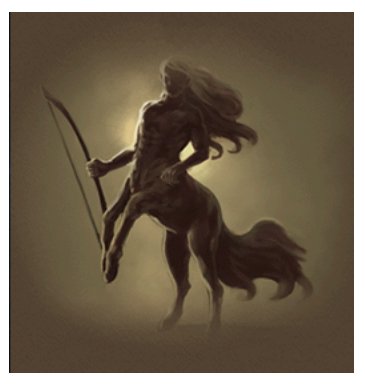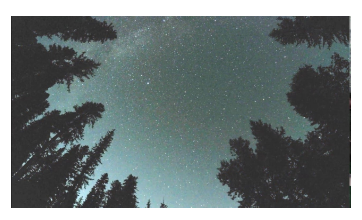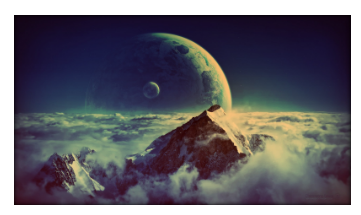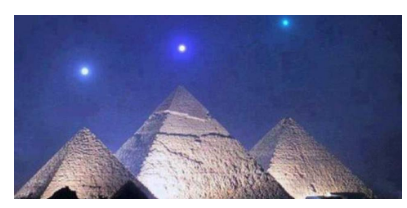Announcements
You may notice that some of the links to sources of images no longer work. That's no big deal, because the important thing is that the images are in the lessons.
Please write your essays and short answers in English, using the web site "Google Translate" to translate them, and write NES at the top of your essays so as not to lose marks in case the web site makes spelling or grammatical errors.
Lesson 4) Why We Care About the A.M.E.

Firenze.
Source: here
Don’t be afraid of the centaur. Yes, the centaurs are a proud race and most of them don’t like the company of humans, possibly because some of the wizards and witches they met weren’t sufficiently respectful to them, but Firenze is an exception. For example, he taught Divination at Hogwarts from 1996 to 1998 against the wishes of his herd, retiring from his position after being badly injured during the Battle of Hogwarts. We do want to maintain his good will towards us, so let’s all treat him with the respect he deserves. As a treat for you all, I have invited him to give some of today’s lecture. He graciously agreed to come here and teach us – yes, us – about the divinatory effect of the stars and planets on events here on Earth. But first, a brief introduction to the magic coming from astronomical bodies.
All the magic in the universe comes from the stars. Most of the magic in our solar system comes from the Sun; only a small part of it comes from the other stars because they’re so far away. The Moon, the planets, and their moons all absorbed some magic from the Sun as they were being formed about 4.5 billion years ago. The part of this magic that was on the surfaces of these bodies radiated away long ago; the part of it that’s in the interior is locked inside by the surface, which only lets it escape little by little. An active volcano lets it escape much more quickly, but only Jupiter’s innermost moon Io still has active volcanoes. A bit of the magic originally given to the planets and moons by the Sun may reach the Earth, but there’s so little of it compared to the magic these bodies reflect from the Sun that it can be safely ignored when considering their effects. Additionally, astronomical bodies modify the magic they reflect, giving it certain special properties. You all know that the magic reflected by the full Moon transforms werewolves into their wolflike form. It also has other effects, which will be discussed in Year Two. The magic reflected by the planets also affects events on Earth, although more subtly.
The term A.M.E. Quotient, or Astronomical Magical Effect Quotient, describes the amount of magical effect a non-light-producing astronomical body has on another planet (or another object, such as a moon or even a spacecraft). Unless the other affected planet or body is specified, you may assume in this class that we are dealing with Earth.
Why should we care about the A.M.E.? The Moon and each of the planets have a different type of magical and divinatory effect on the Earth - Firenze will tell us in just a moment the type of divinatory effect that each of the planets has. The A.M.E. of the Moon or a planet tells us the amount of magical and divinatory effect of that type that will reach Earth. Once we know how much of each type of magic we are receiving, we will be in a better position to decide which of our activities will be helped by the magic coming at us from the heavens and which will be hindered, and that is why we should care about the A.M.E.
The equation for the A.M.E. Quotient is rather complex. However, I am not going to have you memorize it; all you need to know for this lesson are the variables that constitute it. These factors are:
Distance from the Sun - how far the body in question is from the Sun
Angular size – how big the astronomical object appears from Earth
Albedo – how much light and magic the astronomical object reflects from its surface relative to the amount of light that falls upon it. In most cases, optical albedo and magical albedo are similar, but there are exceptions.
Phase – how much of the object is lit in the sky and not blocked from the Earth by another body
Interference – how the magic from one astronomical object interacts with the magic from other astronomical objects
Generally, astronomical objects that have a high A.M.E. Quotient, such as the Moon, have a large magical effect on the Earth. Objects like planets in star systems in other far away galaxies have low A.M.E. Quotients, so we rarely feel their effects here on Earth.
More details about these variables will be presented in Lesson Five, and the way we find them will be discussed in Lesson Six. But now it is time to turn the floor over to Firenze. Please welcome him!
As your professor said, my name is Firenze, and my herd lives only a short distance from your castle. We do not mix much with the humans here, though I have instructed students in the divinatory arts from time to time. Today, I join you at your professor’s invitation to discuss an area of overlap between our two subjects: astronomy and divination.

Source: here
The study of the planets is instrumental to understanding what is happening around you and what is to come. While the effects the planets have on us may seem small and subtle in comparison to that of the Sun, even small things may have an impact. A single kind act can avoid a decade of conflict, and a moment of weakness can cause untold suffering.
It would be necessary to delve too deeply into divination and astrology to discuss the difference between a magical astronomical effect -- or what the planets cause to happen -- and divinatory meanings, which many beings use to guide their future. For today, it is enough to say that they are similar, but not the same. I have heard that your Divination professor does a fine job of explaining the difference. Should the topic interest you, I’m sure they would be happy to discuss it with you. For now, though, I can provide a quick introduction to the divinatory meanings.

Source: here
We will start with the planet nearest to the Sun, Mercury. It is the planet of sudden creative influence, problem solving, and inspiration.
Venus foretells the importance of feelings. This means any emotion, from anger to love. Meditation and attempts to center your thoughts inwardly are also emphasized.
Less cheerfully, Mars is a harbinger of danger, blood, and battle. Its appearance in the sky is always ominous and typically foretells battle. Additionally, this planet’s appearance indicates upcoming strong wills and stubbornness. This may mean longer-lasting spells or that two opposing factions might refuse to compromise during negotiation of a treaty.
Jupiter implies the appearance of unstoppable forces, be that in a quiet way -- like a stream eroding a riverbank or beings living and dying as per their cycles of life -- or in a very bold and loud way -- like foreign invading armies or rampaging plagues.
Careful consideration is the meaning of Saturn. Its influence inspires empathy, perspective, and slow, thoughtful consideration. Uranus, on the other hand, has the opposite meaning. It implies the importance of individual thoughts, such as what is best for you, rather than what others might be feeling. It also indicates a change or transition, usually in thought, but on occasion in action as well.
Divinatory abilities are heightened when Neptune is involved. Though, often, people are not aware of what to do with this insight, nor even recognize it for what it is. It is also an indicator of sacrifice -- not petty compromise, like allowing your friend to take the last treacle tart, but deep and life-altering sacrifice.
Lastly, we have Pluto. Though not a planet, it is still a large body which orbits the Sun and impacts us with its particular flavor of magic. In fact, there are more heavenly bodies that exercise control over Earth besides the planets, Moon, and Sun, though these bodies have influences that are most strongly felt. Pluto’s minimal divinatory importance is related to cycles. This can be life cycles or the repetition of the past.
As you can see, the planets’ meanings listed are vague, and there is no planet for “finding the spellbook I lost” or “a good time to invite someone to the dance.” The planets’ messages for us of the future are much subtler than that and require careful interpretation and consideration.
This is all the more true when you realize that these separate meanings are just the start. When two or more planets (or other heavenly bodies) are arranged in the sky together, their effects are combined. This can be in the form of conjunctions, syzygies -- alignments of the planets -- or simply when both planets are nearer to Earth in their orbits. This creates further nuances, such as when Mars and Jupiter are aligned, potentially inciting or continuing a bloody war between two great powers, or when both Uranus and Neptune are having effects on Earth, which might cause a change in an established cycle.

Source: here
All this detail can be overwhelming, and truly grasping the influence of the cosmos requires many years of study devoted solely to that topic. However, these simple pieces are enough to get you started. It is nearly time to bid both you and the castle farewell, though I have enjoyed my time here greatly, as always.
Thank you for coming here and sharing your knowledge with us, Firenze. We all learned a great deal from your lecture. Let’s all give him a big round of applause.
Not only is the information he shared with us fascinating, but it can also help you make appropriate choices should you wish to take advantage of the magic reflected by the planets or the Moon or avoid being harmed by it. For example, you’d want to take special precautions when venturing outside on the night of the full Moon in case there’s a werewolf nearby! As you will learn in Year Two, some potions or their ingredients are affected by the Moon, so a potioneer would want to know when the Moon’s A.M.E. will be suitable for brewing a given potion or harvesting its ingredients. And there are cute little animals that you can see dancing in the light of the full Moon. Since Mars is related to violence, you’d best avoid a powerful enemy when its A.M.E. is high. Since Venus is related to love, the time when its A.M.E. is high might be a suitable occasion to ask your crush out on a date. These are only a few of the reasons why all wizards and witches might want to be able to calculate the A.M.E. of the planets and moons or at least make a rough estimate.
The concept of the A.M.E. Quotient was first proposed and developed by Dr. Ayesha S. Mansour, about whom you will learn more in the last lesson of this year. She was one of the hometown heroes of Stamford, Connecticut's magical community; she had moved to the United States from England when she was three years old and spent most of her life there. She loved making up fun-sounding new terms for her many discoveries; the original name for the A.M.E. Quotient was the “Astromeff Quotient,” but she changed it after realizing that other astronomers did not appreciate her sense of humour. Fun fact – she was an alumna of Hufflepuff House. Her mother, an Englishwoman, was the Hufflepuff Head Girl during her school days.
While Mansour was a student at Hogwarts, she learned about all the effects that the magic reflected by the full Moon has on Earth, and she asked herself whether the planets too had a similar magical influence. For ten years she made careful observations of the correlation between the apparent brightness of the various planets as seen from Earth and happenings here. For example, by reading accounts of violence in both Muggle and magical newspapers, she discovered that, whereas the greatest amount of violence didn’t always coincide with the maximum value of Mars’s apparent brightness, the amount of violence tended to be greater the brighter Mars appeared to be. However, in her studies, she also noted that, while the planets did seem to have some sort of influence, it was much less consistent than that of the Moon. She gave two reasons to explain this phenomenon: none of the planets have an A.M.E. that’s even one-thousandth as great as that of the full Moon, and unlike the effects of the full Moon, the effects of the planets could be increased or decreased or even reversed by local influences. Does that mean that we shouldn’t care about the planets’ A.M.E.? Heavens no! (Pun intended.) They do have some effect, however small. If you want to make plans, it’s helpful to have information about your odds of success, and the A.M.E. of the planets is one piece of information, and perhaps the only one, at your disposal. When I say that the time when Venus’s A.M.E. is high “might be” a good time to ask your crush out on a date, what I mean is that, amongst all the factors that play in the game of life, there is at least one pulling in your favour. And hey, it’s a good strategy to take the best odds you can get.
Hands up, those of you who would like to ask our guest questions after the lecture. It seems that almost everyone does, so please stick around until the end of the lecture. I promise to be brief.
Here’s another treat: there will be no essay for this lesson, only the usual ten-question quiz. That’s the good news. The bad news is that there will be a midterm exam after the next lesson and I want you to have enough time to study for it.
Now, you will learn more about some of the information that Firenze gave you in Year Three of your Divination course, but I thought you’d enjoy it more getting it straight from the horse’s mouth … Firenze! Please come back! I didn’t mean any disrespect! I was just trying to be funny! Oh, when will I learn to think before I speak?
Original lesson written by Professor Turing.
Part of this lesson (not the Guest Lecture) written by Professor Plumb.
Ever wonder what is beyond this Earth? Yes, the night sky may be beautiful, but knowledge of the heavens will also help you become a better witch or wizard. In Year One, you will observe the skies with a magical telescope, learn about our solar system neighbors, and discover how magic reflected off astronomical objects can affect us all on Earth. Come join us in Astronomy 101 - it’s an out of this world adventure!
Enroll
-
1.4: Intro to A.M.E.
Quiz
-
Velinea Nite
Head Student
-
Timothy Walsh
Professor's Assistant
-
Alex Halsey
Professor's Assistant
-
Namikah Hunt
Professor's Assistant


